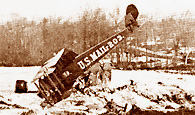 |
 |
09.22.08

Why Do Seemingly Smart People and Companies Make Such Blunders?In business, don’t we have structures in place that are designed to bring in a variety of expertise when making major decisions and ensure that no one person can send the business in the wrong direction? Don’t we do our due diligence?As a species we are not as rational as we would like to think. We tend to be overconfident, too quick to come to a conclusion and not inclined to learn from our mistakes. In the well-executed Billion-Dollar Lessons, Paul Carroll and Chunka Mui write that “humans are hardwired to come up with bad strategies.” Doing due diligence is extremely difficult because of these natural tendencies:
Inertia too, is a big contributor to poor strategy. The hoops that one has to jump through and layers of bureaucracy that have to be appeased “make it hard to derail a strategy once it has reached a certain point. It’s just too painful to go back and start over.” The authors say it is not enough to be aware of these issues. If we are to learn from our mistakes, there has to be some incentive to do so. 
Posted by Michael McKinney at 12:39 PM
|
BUILD YOUR KNOWLEDGE
 

How to Do Your Start-Up Right STRAIGHT TALK FOR START-UPS 
Grow Your Leadership Skills NEW AND UPCOMING LEADERSHIP BOOKS 
Leadership Minute BITE-SIZE CONCEPTS YOU CAN CHEW ON 
Classic Leadership Books BOOKS TO READ BEFORE YOU LEAD |